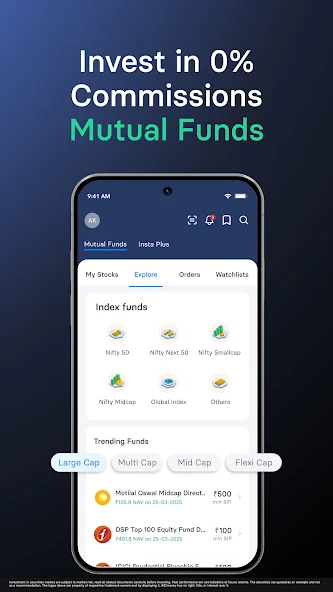In the ever-evolving world of stock trading, reducing costs is a key concern for both new and experienced traders. Among the many innovations in the financial industry, zero brokerage models are transforming how traders manage their investments. These platforms have quickly become the preferred choice for those who trade frequently and prioritize cost-efficiency.

Whether you’re entering the stock market for the first time or have years of trading experience, understanding how zero brokerage works — and how it affects your trading results — can be a game-changer. With reduced barriers and fewer fees, zero brokerage enables traders to focus on strategy and performance without the pressure of high transaction costs.
What is Zero Brokerage?
Definition and Concept
Zero brokerage refers to a model where traders are not charged a commission on buying or selling certain types of securities, particularly equities. Unlike traditional stock trading platforms that charge fees per transaction or a percentage of trade value, these platforms offer a flat or no-cost structure for trades.
This approach benefits those who execute multiple trades daily or weekly, as fees no longer eat into profits. Instead of paying for each trade, traders can allocate more capital directly into the markets, increasing potential gains.
Types of Zero Brokerage Plans
There are typically two approaches under zero brokerage:
- Unlimited Trades: Users can execute as many trades as they like in a month without any fee.
- Limited Instruments Free: Zero brokerage may apply only to specific asset classes like equity delivery while other services such as derivatives may still attract charges.
Understanding the scope of these plans is essential before choosing a platform, as the real benefit depends on your trading frequency and preferred investment instruments.
Why Active Traders Prefer Zero Brokerage
Cost Efficiency for Frequent Trading
For those engaged in daily or intraday stock trading, fees accumulate quickly. Even a small brokerage fee per trade can substantially reduce profits. Zero brokerage offers a straightforward way to cut down on these unnecessary expenses, allowing traders to retain more of their returns.
This cost-saving element makes it ideal for short-term traders, scalpers, or anyone executing a high volume of trades. By eliminating commissions, the model empowers traders to experiment with more strategies without worrying about overhead costs.
Transparency in Fee Structure
One of the advantages of zero brokerage is its transparent pricing model. Traditional brokerages often have hidden charges or tiered pricing that changes based on volume. In contrast, zero brokerage platforms tend to be clear and predictable in their pricing, which helps in planning trades without uncertainty.
Traders appreciate knowing what they’ll pay — or not pay — before executing trades. This predictability builds confidence and trust in the platform and allows better financial management.
How Zero Brokerage Enhances the Trading Experience
Focus on Strategy, Not Fees
Traders thrive on analyzing charts, reading trends, and making fast decisions. Having to consider costs with every trade adds an extra layer of complexity. Zero brokerage removes this friction, letting users concentrate on refining strategies and improving execution without being penalized for frequency.
This is particularly beneficial for those who rely on technical analysis and need to place multiple trades in short time frames. Without fee constraints, traders gain the flexibility they need to act on opportunities as they arise.
Greater Market Participation
Another benefit of zero brokerage is its role in encouraging market participation. Reduced entry barriers attract more retail traders who may have hesitated due to high brokerage fees. This broader participation can contribute to more vibrant markets, increased liquidity, and potentially better price discovery for all participants.
In essence, lower costs democratize stock trading, inviting individuals to participate actively without the fear of losing money to high fees.
Things to Consider Before Choosing a Zero Brokerage Platform
Evaluate Hidden Charges
While the promise of zero brokerage is appealing, not all platforms are created equal. Some may advertise zero brokerage but include charges for order execution, maintenance, or value-added services. Always read the fine print and evaluate the total cost structure, including taxes and regulatory fees.
Technology and User Experience
Zero brokerage should not come at the expense of platform reliability or user interface. A strong trading platform must offer real-time data, stable performance during high volatility, and seamless execution. Before making the switch, evaluate whether the platform supports your trading style and tools.
Long-Term Value of Zero Brokerage
Compounding Savings Over Time
The true power of zero brokerage is visible over the long term. Traders who save on fees each time they trade are likely to accumulate significantly higher net returns over time. This compounding of saved costs can make a measurable difference in a trader’s bottom line after months or years of activity.
Especially for active traders, these small savings on every transaction can add up to thousands in the long run. That’s capital which can be reinvested, helping traders build their portfolio faster.
Encouragement for Better Trading Discipline
Zero brokerage can also promote better trading behavior. Without the constraint of high costs, traders can test new strategies, adapt to changing markets, and learn through experimentation — all of which contribute to long-term growth.
At the same time, the responsibility of fee-free trading requires discipline. Traders must avoid overtrading, chasing trends, or taking unnecessary risks just because it costs nothing to place a trade.
Conclusion
The shift to zero brokerage models is more than a cost-saving trend — it’s a significant evolution in the world of stock trading. For active traders, it provides the flexibility and affordability needed to operate efficiently in fast-moving markets.
With transparent pricing, lower barriers to entry, and improved focus on strategy, zero brokerage emerges as the smart choice for modern traders. However, selecting the right platform still requires careful evaluation of hidden costs, platform quality, and your trading objectives.
As more individuals look for efficient ways to grow their investments, zero brokerage is likely to remain a defining feature of the trading landscape — empowering more traders to achieve better outcomes.